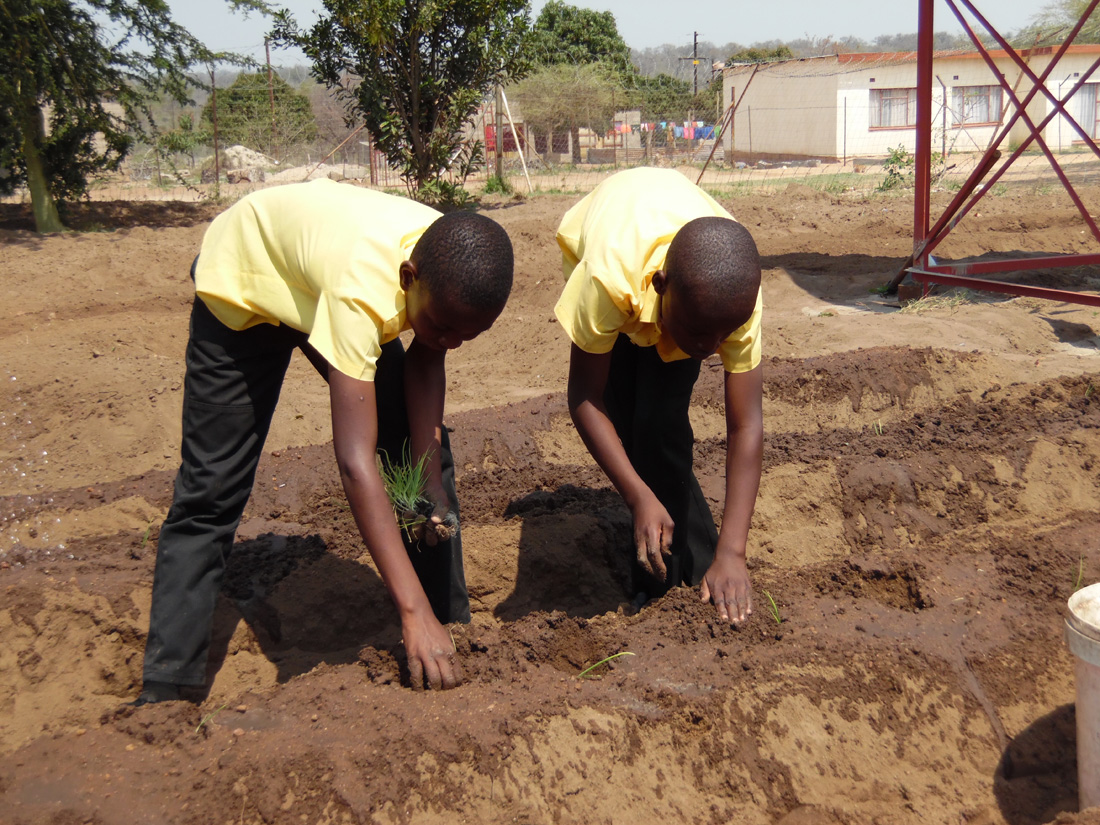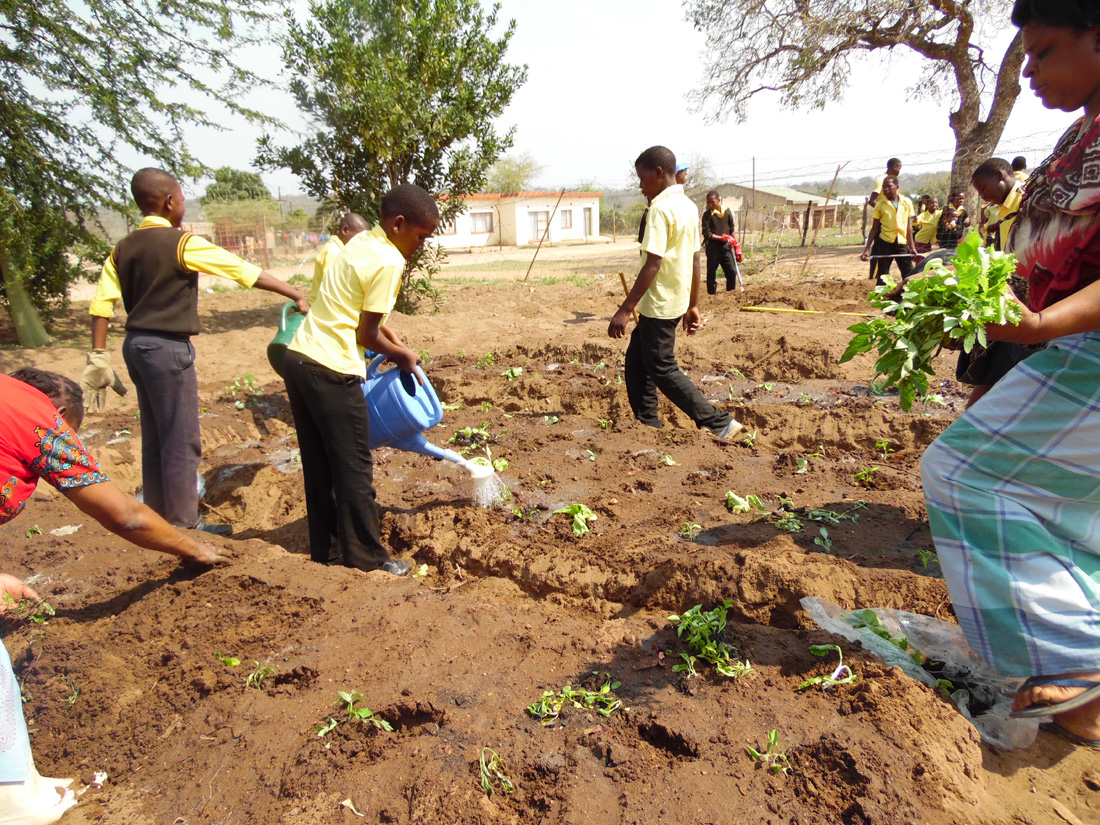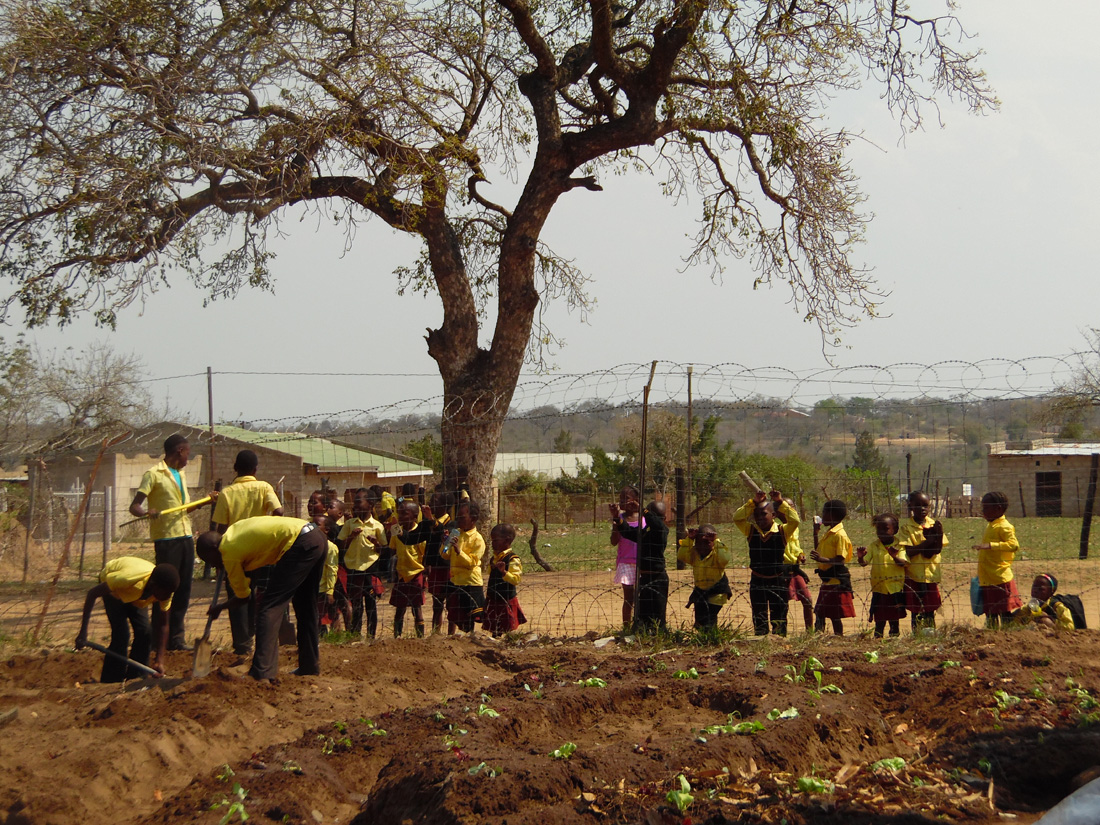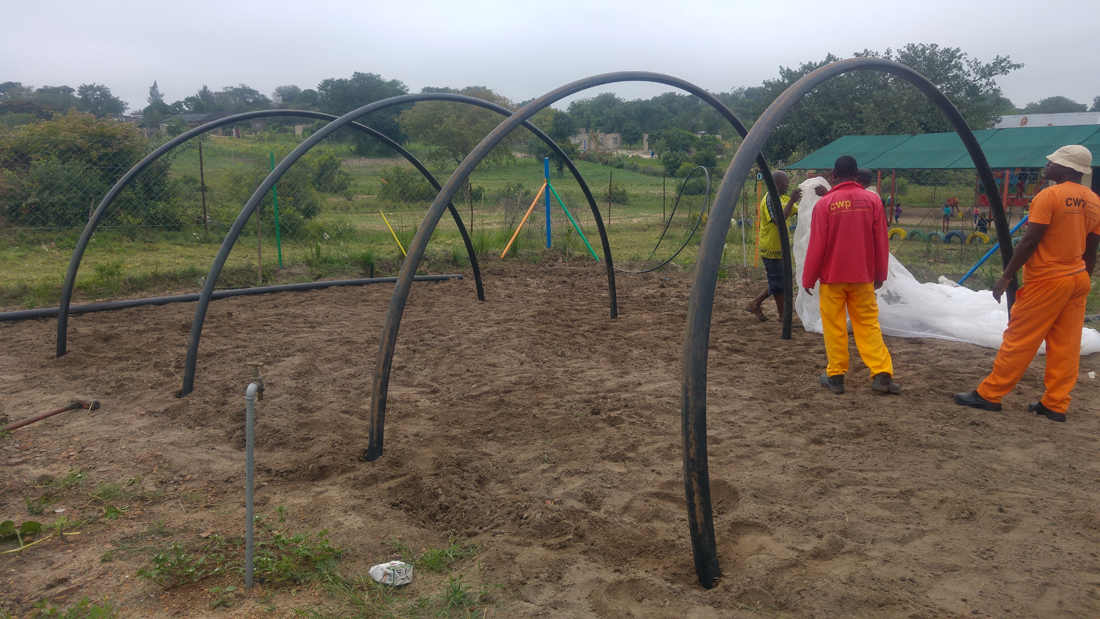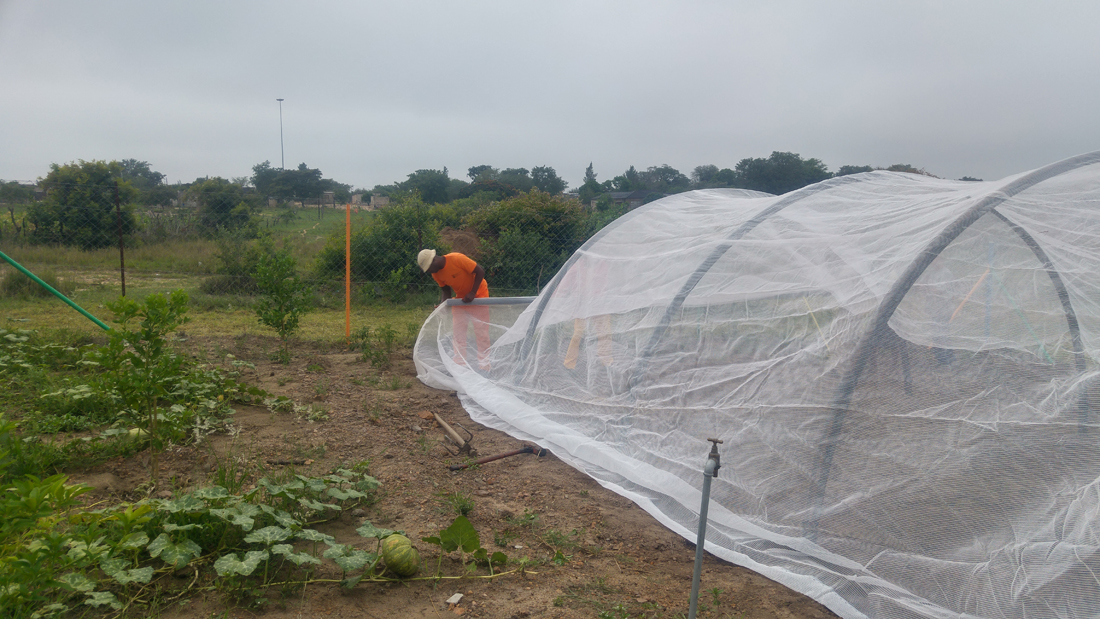Permaculture is derived from the words “permanent” and “agriculture” and is defined as a system of perennial agriculture emphasizing the use of renewable natural resources and the enrichment of local ecosystems. It was a natural evolution of our program to add this component, as resources in the rural areas of South Africa can be scarce. We are ever mindful of how precious of a resource water is, and we felt it was important to provide information to the staff at our partner schools on how to maximize water usage in order to grow the most abundant gardens possible.
or are at risk of hunger
Statistics South Africa (2010). General Household Survey 2009. Analysis by UNICEF South Africa
Principles of Permaculture
The core tenets of permaculture are:
- Care for the earth: Provision for all life systems to continue and multiply. This is the first principle, because without a healthy earth, humans cannot flourish.
- Care for the people: Provision for people to access those resources necessary for their existence.
- Return of surplus: Reinvesting surpluses back into the system to provide for the first two ethics. This includes returning waste back into the system to recycle into usefulness.
At A Spring of Hope’s partner schools, these tenets are translated into the following practices:
- Make small gardens, as they are more a more efficient use of energy and resources and easier to maintain.
- Choose plants and animals that have many uses instead of just one.
- Be self-reliant. For instance, harvest your own water.
- Recycle waste. Recycling keeps resources and energy in a perpetual cycle.
- Make your waste pay by using kitchen water in the vegetable garden and composting kitchen waste for use in the garden.


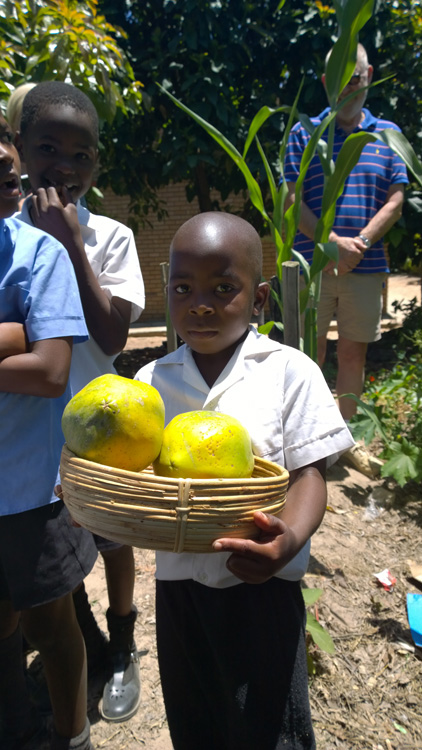
Permaculture design emphasizes patterns of landscape, function, and species assemblies. It determines where these elements should be placed so they can provide maximum benefit to the local environment. The central concept of permaculture is maximizing useful connections between components and synergy of the final design. The focus of permaculture, therefore, is not on each separate element, but rather on the relationships created among elements by the way they are placed together; the whole becoming greater than the sum of its parts. Permaculture design therefore seeks to minimize waste, human labor, and energy input by building systems with maximal benefits between design elements to achieve a high level of synergy.
Vegetable Tunnels
A Spring of Hope has recently added another component to our permaculture program. For those of our partner schools who don’t have any trees surrounding their gardens, these easily-constructed structures of tubing and high density poly netting provide a 50% shade factor, which is helpful in shielding young seedlings from the hot sun and preventing rapid evaporation of water. As an added benefit, they also protect plants from insects. They are ideal for growing fresh spinach, cabbage, onions, cherry tomatoes, green sweet peppers, beetroot, and potatoes and we anticipate they will significantly increase the yield from the gardens. Not only will our partner schools have abundant produce for lunches, they can then sell the excess to the community, thereby creating an additional income stream.
